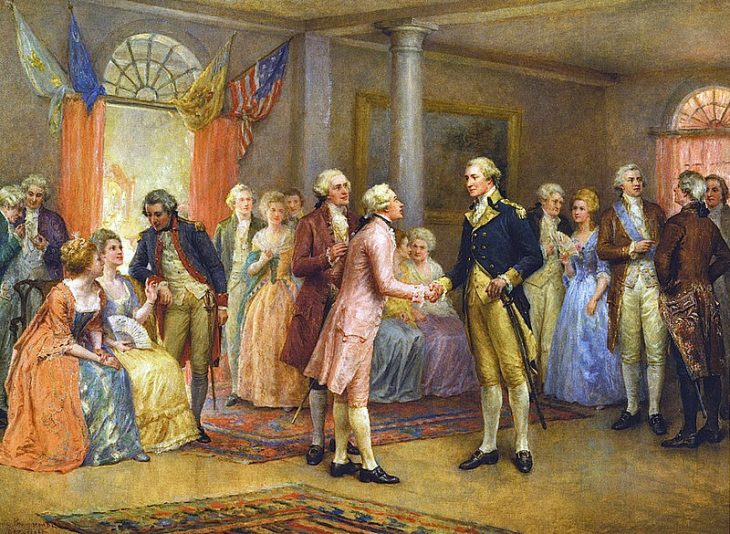
Word of the Day: Affable
Today’s word of the day, thanks to The Worth of Words by Dr. Ralcy Husted Bell (Grafton Press, 1902), is affable. According to www.dictionary.com, affable means “pleasantly easy to approach and to talk to; friendly; cordial; warmly polite” or “showing warmth and friendliness; benign; pleasant.” According to www.etymonline.com, the word affable is used “of persons,” means “’open to conversation or approach,’” and entered the language in the “late 15c., from Old French affable ‘benign, approachable’ (14c.), from Latin affabilis ‘approachable, courteous, kind, friendly,’ literally ‘who can be (easily) spoken to,’ from affari ‘to speak to,’ from ad ‘to’ (see ad-) + fari ‘to speak,’ from PIE root *bha- (2) ‘to speak, tell, say.’”
But 118 years ago, Dr. Bell wanted to make sure that people did not misuse the word, so he said this about the word affable:
Affable, which means “literally, ready to speak, easily approachable in conversation,” has, by authoritative usage and common consent, become “limited to the expression of an easy, courteous, and considerate manner on the part of persons of superior position to their inferiors.” Milton makes Raphael the “affable archangel,” and has Adam to say to him, as he is about to depart heavenward:
“Gentle to me and affable hath been
Thy condescension, and shall be honored ever
With grateful memory.”
But to speak of some bejeweled and vulgarly bedecked parvenu, with nothing to her credit except money and fat, as being on some occasion “affable to her guests” is clearly an indecent insult to a very decent word. And what could be more unpardonable than to speak of some old pot-bellied politician as an “affable gent”? (Bell, Ralcy Husted, The Worth of Words, [New York: Grafton Press, 1902]: 7-8).
On this date in 1776, General George Washington was granted an honorary Doctor of Laws degree by Harvard University. We all know who George Washington was, and it may be surprising that he was honored so long before the successful completion of the campaign against the British. As a young man, Washington fought in the French and Indian Wars as a commissioned officer. After that war, he married and became a plantation owner. He also became involved in colonial politics, speaking out repeatedly against the British.
In many ways, though, Washington, the hero of the people and the Father of the country, was an elitist. He married a wealthy widow; he was a slave owner; he was very hard on the troops. And he ran in elitist circles.
One of the elites in whose company he ran was the Frenchman Marie-Joseph Paul Yves Roch Gilbert du Motier, Marquis de La Fayette, commonly known as just Lafayette. The two met when Lafayette hired a ship and a crew and crossed the Atlantic to help the colonists in their war for independence. He was just 19.
The two became friends as well as comrades in arms. Lafayette wrote later in his memoir (writing in the third person, “The majesty of his figure and his height were unmistakable. His affable and noble welcome to M. de Lafayette was no less distinguished, and M. de Lafayette accompanied him on his inspections” (https://www.mountvernon.org/library/digitalhistory/digital-encyclopedia/article/george-washington-and-the-marquis-de-lafayette/).
Of course, it is probably easy for one member of the elite to be affable to another member of the elite. I wonder if the average foot soldier would have found the general equally affable.
The image today is “Washington Greeting Lafayette at Mount Vernon,” an oil painting by Jennie Augusta Brownscombe, from the early 20th-century, which is now housed at Lafayette College in Easton, Pennsylvania.